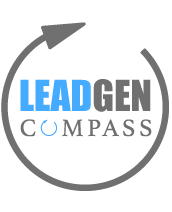Why Manufacturing Companies Can’t Afford to Multi-Task When it Comes to Lead Generation
Competition for leads is increasing across all industries and manufacturing is no exception. In fact, one could argue that the manufacturing industry is even more competitive when it comes to lead generation due to the number of supply and demand variables.
Couple these variables with a longer and more complex sales cycle and it is clear that navigating the manufacturing lead generation landscape takes a careful approach. Unfortunately, many manufacturers believe that the answer is to hire more direct sales staff and less marketing staff. These manufacturers are asking staff to do double, sometimes triple, duty by assigning a single employee marketing, sales and customers service tasks. When this happens, lead generation is usually the first to suffer.
“The challenge with hybrid roles like that is you’re asking a lot from a single employee and forcing them to go an inch-deep and a mile-wide on their tasks, “ according to Greg Chambers of LeadGen Compass. “Lead generation gets the short straw and gets left behind.”
Of course, this is no fault of the individual employee. Not only do they have a lot (some would argue too much) on their plate, long sales cycles cause lead generation to be pushed aside in favor of more urgent tasks. The problem is that lead generation is the most urgent need for manufacturers due to increased pressure from factors such as rising personnel costs, burdensome regulations and a shrinking export market share, just to name a few.
These factors highlight the need for a greater emphasis on lead generation and marketing specialists who can lead the charge. What follows are just a few of the many ways manufacturing companies can up their lead generation game through marketing.
- Establish a clear buyer persona. While manufacturing companies know the companies they want to connect with, too often they are unaware of the people within those companies that can help them get their foot in the door. Further, they need to understand the pain points these individuals face. The only way this can be accomplished is by listening to these individuals and establishing meaningful relationships.
- Produce quality content. Manufacturers need to get on top of new developments in the industries they are targeting and provide unique insights on these developments. Specifically, insights that will allow prospects to be more successful.
- Make it personal. Trade shows and other events that allow you to speak one-on-one with prospects go a long way. Don’t drop the ball following these events, either. Lead nurturing is a critical aspect of lead generation.
- Don’t rush to sell. The warmer the lead, the more important the follow-up. Website visitors who leave their contact information merit a timely, thoughtful response that doesn’t involve an immediate sales pitch. Instead, it is important to take the time to get to know the prospect and make it about what they need – not what you want to sell.
Maximizing each and every lead is critical to success, especially in the manufacturing industry. Without a serious investment in lead generation, however, this isn’t feasible. Remember, without leads there are no customers, which is why lead generation isn’t something to tack on to the end of a salesperson’s or customer service rep’s to-do list.
To learn more about how LeadGen Compass can help your manufacturing business put its best foot forward in terms of local marketing, call us today at 402-682-7418 or visit leadgencompass.com.
Our marketing team will help your business generate more traffic, more calls, more B2B leads, and more revenue.
Contact us today and see for yourself what LeadGen Compass can do for your sales pipeline.



